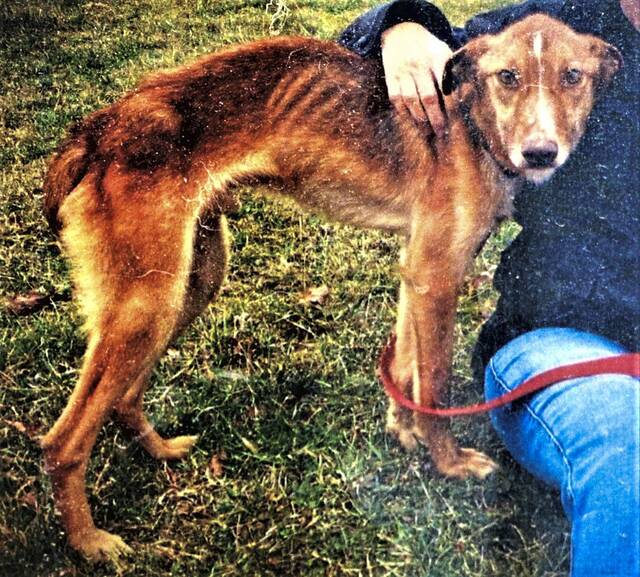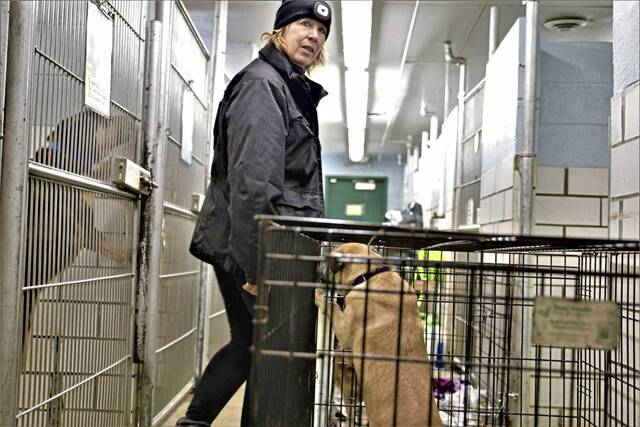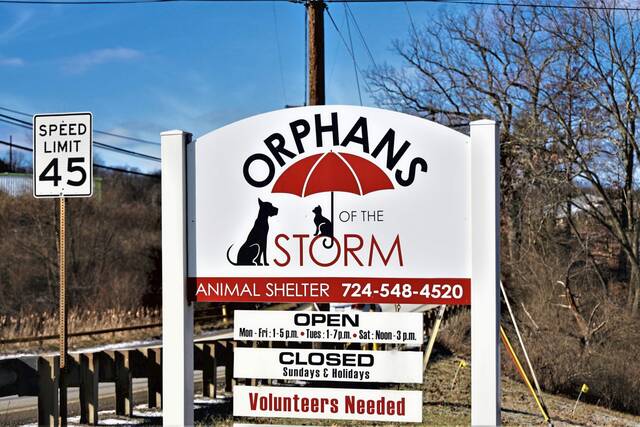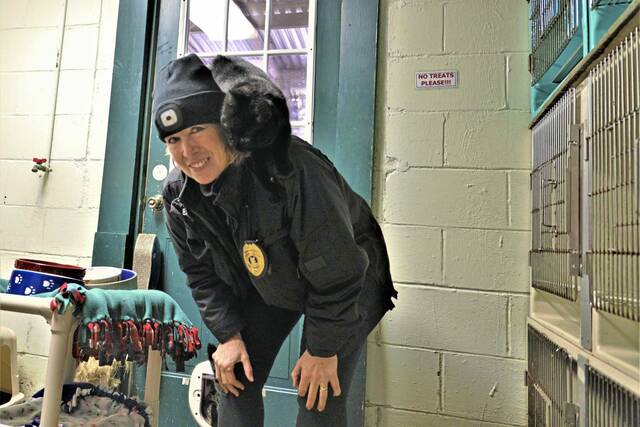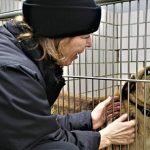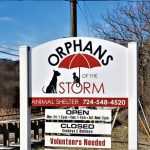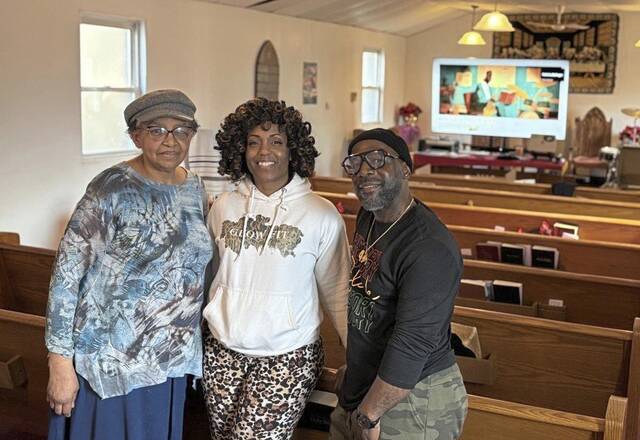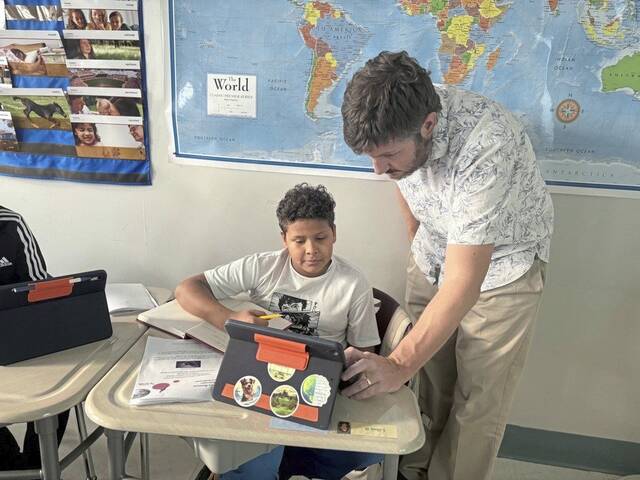Chris O’Donnell was only two months into her job as a state humane officer for Armstrong County before she realized that none of the local rescue shelters were equipped to handle a case of abuse or neglect involving a large number of animals.
A specific case she responded to on St. Patrick’s Day involving numerous animals revealed a deficiency in the ability to manage certain cases.
But it also planted the seed for the creation of a network of shelters in Armstrong, Westmoreland and Indiana counties dubbed the Humane Action Team.
The March 17 case was in the tiny village of Templeton, where 20 animals were rescued that were in need of varying degrees of medical treatment. There also were eight dogs, 19 cats, 10 rabbits, two ducks, three chickens and a pot-bellied pig found dead.
The property owner was charged with 198 counts of animal abuse and neglect.
While twice as many animals were found dead as alive, the incident raised the question of what would be done if all of them had to be rescued?
“That case was the first time I realized the shelter I’m affiliated with would not have been able to handle that many animals,” she said. “I reached out to Frankies Friends (in New Kensington) and they were able to take some of the rescued animals. That was the first time that we cooperated with another shelter to help with the rescued animals.”
O’Donnell, 60, noted that state humane officers are required to be affiliated with a rescue shelter. Her affiliation is with the Orphans of the Storm shelter just outside of Kittanning.
O’Donnell investigated 104 cases of animal neglect and cruelty last year. She worked with local law enforcement agencies, state police and the Armstrong County District Attorney’s Office to prosecute offenders.
The Templeton animal hoarding case prompted O’Donnell to reach out to other shelters to develop a network of organizations willing to take animals in when a local shelter doesn’t have room.
“There was a realization that none of us can do this alone, so we need to work together,” she said. “This is all about creating partnerships.”
In addition to Orphans of the Storm and Frankies Friends, the participating organizations that make up the Human Action Team are:
• Kiski Valley Cat & Kitten Rescue, Apollo;
• Four Footed Friends, Indiana;
• Champion’s Crusaiders Rescue, Vandergrift;
• Animal Protectors of Allegheny Valley, New Kensington;
• Dr. Sandra Rodkey and Altmeyer Veterinary Hospital, Kittanning;
• Humane Animal Rescue of Pittsburgh;
• Animal Friends, Ohio Township.
In September, the need for the Humane Action Team became clear when O’Donnell was called out to a home where 61 cats were rescued.
“The cats were at the home of a disabled veteran and his young family who took in several cats that needed help,” O’Donnell said. “But the cats were not neutered, so their numbers quickly multiplied. They were providing them with the best care they could but the number of cats became overwhelming for them.”
The participating organizations took in the cats and provided them with medical and behavioral care so they could be placed in temporary foster care and eventually put up for adoption.
O’Donnell said small shelters have to be mindful of the number of rescued animals they take in at one time to avoid the possibility of spreading disease.
“The challenge with hoarding cases is that if we bring them into a shelter and don’t isolate them, there’s a chance that we could spread diseases to the other animals,” she said. “Unfortunately, most smaller shelters don’t have the room to do that when it involves a large number of animals.”
She noted that it is typical for a shelter to have more animals being cared for by their network of foster homes than they keep at their shelters. In addition to making room for more rescues, putting rescues in foster care helps the animals with socialization so they can be adopted.
O’Donnell said the Humane Action Team also is needed because nonprofit shelters in the area typically face financial challenges that prevent them from expanding or upgrading their facilities. Most rely only on donations and the small fees charged for adopting pets.
“The shelter I’m affiliated with is in a building that’s more than 50 years old that needs some work,” she said. “When it rains hard, the area where the cats live floods so we have to evacuate all of them.”
She said the shelter’s operators would like to build a new, larger facility. But like other smaller rescues in the region, finding enough money to stay afloat, let alone expand, can be challenging.
At small shelters such as Champion’s Crusaiders Rescue, which can handle up to 46 animals, keeping the doors open has meant finding sources of income other than from fees charged for adoption.
State humane officer Amber Phillips, the shelter’s founder, said the main source of income for the nonprofit organization comes from a private pet spa she operates out of the building.
Even the job of rescuing abused and neglected animals can be a financial challenge for state humane agents, who are sworn law enforcement officers with arrest powers — but receive no compensation unless a shelter can afford to pay them.
“I work as a volunteer,” O’Donnell said. “I have to pay for my own transportation, gas and equipment. I’m thankful that the shelter is able to cover the cost of my insurance. But everything else comes out of my pocket. My gift wish list last year had things on it like personal protective equipment and nets.”
O’Donnell said one piece of gear on her wish list is a bulletproof vest.
“People in hoarding or neglect cases are not always cooperative when I show up,” she said, noting that she is unarmed except for a canister of chemical pepper spray. “I’m usually accompanied by a law enforcement officer when I go to a investigate a complaint, and on more than one occasion the officers who where with me mentioned that I should probably be wearing a vest for these type of situations.”



